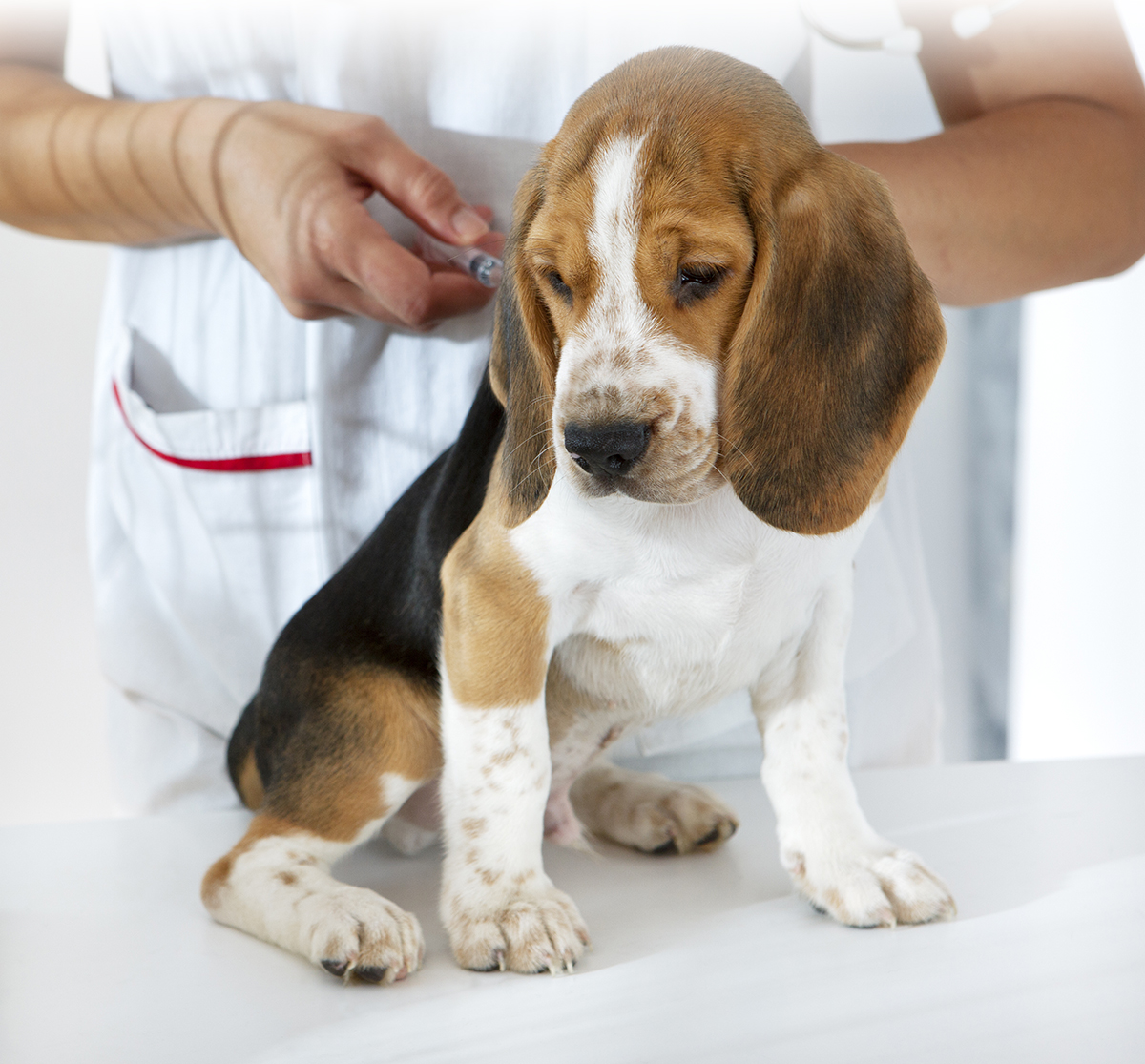Dog Neutering and Spaying in Rio Rancho
As pet parents, we always want what’s best for our canine companions. Using our services for dog neutering and spaying in Rio Rancho near Bernalillo can help them live longer and happier lives.
When needing an experienced and compassionate team of veterinarians, look no further than Coronado Pet Hospital.
What Do Dog Neutering and Spaying Surgeries Involve?
Neutering and spaying your dog involves removing their reproductive organs. These surgical procedures require anesthesia and consistent monitoring of your pet’s vitals from preoperation to recovery.
Dog Neuter Procedures
Neutering involves removing the testicles of male dogs. For most, a small incision is made in their scrotum to allow the veterinarian to remove both testicles.
There is a small percentage of dogs that have a condition called cryptorchidism. This condition means your dog has a testicle retained in their abdomen. If your dog has cryptorchidism, the veterinarian will make a small incision in their abdomen to remove the testicle.
Dog Spay Procedures
Spaying involves removing the ovaries and uterus of female dogs. To ensure your dog receives the least amount of discomfort during and after surgery, our highly skilled veterinarians at Coronado Pet Hospital make the tiniest incisions into the abdomen. These incisions bypass the abdominal muscles, giving a clear path to their ovaries and uterus.
After surgery, we’ll closely monitor her to ensure she safely recovers from surgery while her pain is managed through pre and intraoperative pain medications.
Why Should I Neuter or Spay My Dog?
It’s understandable why pet parents cringe at the thought of neutering and spaying their dogs. Many don’t want their beloved companions to endure surgeries at such young ages. At Coronado Pet Hospital, we understand these concerns. That’s why we want to discuss how these procedures benefit your dog and our community.
Reducing Homeless Pet Populations
New Mexico’s animal shelters are usually overflowing with dogs and puppies. While our shelters and rescues do their best to find homes for these dogs, many still end up homeless on the streets.
Neutering and spaying your dogs in Rio Rancho and Bernalillo ensures fewer dogs end up in shelters and on the streets. All it takes is one time when your dog escapes to find a mate to cause a pregnancy.
Reducing Risks of Certain Cancers and Diseases
For male dogs, removing their testicles eliminates their chances of getting testicular cancer. Neutering also reduces the risk of your dog developing inflammation and related diseases of the prostate and perianal region.
For females, removing the uterus eliminates their chances of developing pyometra. Pyometra is a uterine infection that is often fatal. Spaying also reduces the risk of your dog developing mammary cancer, where 50% of mammary tumors are malignant.
Reducing Hormone-Related Behaviors
Your dog’s hormones drive them to display particular hormone-related behaviors. Some of these behaviors include roaming or running away to find mates, urine marking, and aggression toward same-sexed rivals.
While neutering may reduce these behaviors, it’s vital to note that many factors influence your dog’s behaviors:
- Genetics
- Environment
- Training
- Socialization
If your dog still engages in roaming, urine marking, or acting aggressively after surgery, then these behaviors won’t be hormone-related. Never hesitate to contact our animal hospital for guidance regarding your dog’s behaviors.
Are There Reasons Not to Neuter or Spay My Dog?
The answer is yes, and knowing the risks of neutering and spaying dogs is crucial.
Neutering and Spaying Before Maturity
Our veterinarians performing dog neutering and spaying proactively ensure your dog has matured prior to recommending these surgeries. Spays and neuters of immature dogs can increase the risk of developing the following cancers:
- Lymphoma
- Osteosarcoma
- Mast cell tumors
- Cardiac tumors
Orthopedic issues like cruciate ligament ruptures and hip and elbow dysplasia can occur when bones and joints haven’t completely developed. Female dogs may also develop urinary infections and urinary incontinence.
Once your dog matures, the risks of developing these diseases and conditions significantly reduce, causing the benefits of spaying and neutering to outweigh these risks.
Genetics
Genetics is another factor to consider when deciding to spay or neuter your dog. Our veterinarians in Rio Rancho will provide you with all the considerations to account for to help you make the best choices for your dog. We’ll never recommend this surgery until you have all the information available to make an informed decision.
Find Out More About Dog Neutering and Spaying in Rio Rancho
At Coronado Pet Hospital, our veterinarians are a collaborative team of compassionate and highly skilled professionals that care for your pets like they do their own. We’ll ensure every precaution is taken when it comes to your dog’s first surgery.
Contact us today to find out more about our dog neutering and spaying in Rio Rancho near Bernalillo!
 Download Our App
Download Our App
